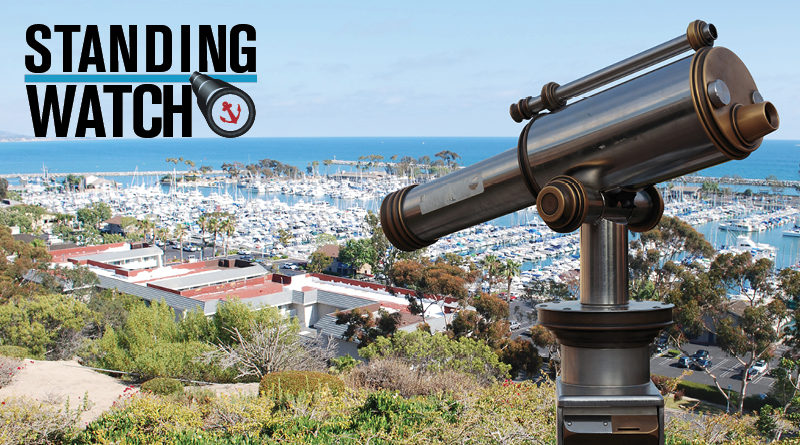Personal watercrafts benefit from boater-paid tax under federal bill
The Sport Fish Restoration and Recreational Boating Safety Act of 2019 covers kayak launch ramps and on-the-water safety programs, but who’s footing the bill?
NATIONWIDE—It’s rare for this take action column to focus on one bill in consecutive issues, especially when that legislative act is floating around the halls of Congress in Washington, D.C. Here we are, alas, rehashing the Sport Fish Restoration and Recreational Boating Safety Act of 2019, two weeks after this take action column last presented the federal bill to our readers. Our last issue introduced the general concepts of the proposal: the Sport Fish Restoration and Recreational Boating Safety Act of 2019, if approved, would extend funding for boating infrastructure and fishing conservation through 2024.
An interesting detail revealed itself after we published the Nov. 1-14 issue: the same bill proposing to maintain funding for boating infrastructure and fishing conservation would also help ensure money collected by boaters would also benefit personal watercrafts, such as canoes, kayaks and standup paddleboards.
BoatUS, the national organization representing more than a half million recreational boaters, recently issued a press release on the Sport Fish Restoration and Recreational Boating Safety Act of 2019. The release pointed out various boating safety programs – which benefit both boaters and personal watercraft users – are funded by the federal bill. Canoers, kayakers and standup paddleboard users, according to BoatUS, would certainly benefit from legislation such as the Sport Fish Restoration and Recreational Boating Safety Act of 2019.
David Kennedy, the manager of government affairs for BoatUS, said water access is for everyone and there has to be enough funding in place to ensure boaters and personal watercraft users alike can enjoy their recreational activities equitably and safely.
“We can’t ignore the continued, successful growth of paddling participation in America and the need to have equitable funding for access and safety programs. Our thanks to Reps. Cunningham and Graves for looking to better understand today’s waterway user and ensure everyone is investing in their future,” Kennedy said in a statement released by BoatUS.
The BoatUS statement specifically highlighted the need to fund equitable access and safety programs. One of the avenues to ensure equitable access to the water, for example, is to create dedicated launch ramps for personal watercraft. We already see kayak-only launch ramps at Channel Islands Harbor in Oxnard and Glorietta Bay Marina in Coronado, for example.
These dedicated launch ramps for kayaks and standup paddleboards are a solid starting point when it comes to promoting on-the-water safety. Boaters and personal watercraft users already have a tenuous relationship, based upon previous coverage in The Log. Additional steps to create dedicates spaces for boaters and personal watercraft users to co-exist on the water, without one side aggravating the other for Rules of the Road violations (whether perceived or real), would also do wonders. Funding for these dedicated launch ramps and on-the-water safety programs through the Sport Fish Restoration and Recreational Boating Safety Act of 2019, ergo, would appear to be a necessity.
BoatUS acknowledges the boating infrastructure and fishing conservation proposal as a vital source of funding for the personal watercraft world.
“The explosive growth of paddlesports including stand-up paddleboarding, kayaking and canoeing has local, state and federal governments working to ensure there’s plenty of paddler access, including paddlecraft-only launches that make it easy to launch a kayak, increasing efforts to ensure paddler safety, and minimizing user conflicts with traditional boaters. The question is, who pays for it,” BoatUS asked in its published statement on the federal bill, which is still making its way through Congress.
“Under a nearly seven-decade-old federal funding mechanism, the answer is recreational power, sail, and fishing boat owners,” the BoatUS statement continued.
The BoatUS answer to its own question raises another question: are kayakers, standup paddleboard users and others in the personal watercraft space making financial contributions to the federal fund backing these dedicated launch ramp initiatives and on-the-water safety programs? Or are the recreational power, sail and fishing boat owners carrying the load for everyone?


